Electric tank or tankless water heater v. Propane tank or tankless
smiles33
6 years ago
Featured Answer
Comments (8)
smiles33
6 years agoRelated Discussions
Tank-less water heaters.
Comments (39)We have had experince with all systems. I had a timer put on our electric hot water heater years ago, we were a work all day and it was usless to have the water heated. Used the heater one hour in the morning and one hour in the evening. If I needed to wash clothes I just flipped the swith. When the second water heater began to have problems I looked into a solar hot water heater. Really expensive to get put in. I settled for a whole house tankless electric hot water heater. It was AMERICAN something brand. Cost about $700 with all the wiring etc. but I loved that the removal of thebig tank gave me room for a pantry. That tankless was in about one year when I began to have problems. I am only one person, so thats probably why it took so long for the probllems to show up. I complained to the company who installed it and they came out looked it all over and yanked it out and install a new SEISCO system and it required more wiring than the original one did. All that and one whole days work with two men and they didn't charge me a dime. I was really impressed. My electric bill has decreased by at least $50 a month and I have seen bills for less than $100 this spring with no a/c on. I have plenty of hot water. Have washer and dishwasher. Never run out. Turn on the shower and by the time I get in it is hot. I love it. I recommend them for everyone. This is an older house and two story with three bathroooms and I never notice any problem with not having hot water.Just be careful who you get to do the work. That's the main thing....See Moretank or tankless hot water heater
Comments (8)"Does the Navien have a bypass? That's good info to know. I hadn't run into the min flow issues until they were reported in the plumbing forum - I don't live where water inlet temps would ever get to 80*. You are about the condensing units having EF's in the .90's" Jake, The Navien has no mixing bypass in the unit like the other flash units that superheat the water in the exchanger to 170-190 and then remix water downstream for temp control. That is why the copper heat exchangers with the intense heat are subject to liming. So they do have difficuties firing and staying on in minimum fire when the cold mix water is to high in temp. The Navien has 100% flow through the #436 stainless steel heat exchangers. Since the unit's heat exchanger is capable of the flow, erosion and due to velocity, along with lower operating temps it is not susceptible to liming & calcification. The pitfall of the design is a slightly wider temp fluctuation than the Jap platform heaters, but this is not noticed so much in the "A" model that buffers that with the internal tank. IMO, the "A" model is the only way to go for the approx 125-150 cost upgrade. The lack of mixing valve downstream, makes the Navien a perfect heater to add in-line to the output of a solar tank to raise the water temp only when tank is low or depleted due to usage or lack of solar input. Rinnai has just released some info on their condensing water heater, 95%. Pitfalls are still polypropylene concentric venting and a Nicaloy primary heat exchanger which to me tells me both the install and unit cost will remain high. Only one left now without a unit above 90% is the Paloma/Rheem/Ruud line....See MoreTankless Water Heater system,cost effective compared to Gas Tank?
Comments (58)Fred derf fred: I too was set on going tankless - till i saw the upcharge. It is coming to about $5,750 more to go with (4) gas tankless (Rinnai 94LS 9.4gpm top of the line) compared to State gas water heaters - as spec'd in the drawings of our house. I did research and found out that gas tankless do have an EF (efficiency rating) of .82, however GAS (i believe you compared electric tank) tank heaters commonly have .62, and a few have .68 efficiency. This results in savings of tankless is about $250 per year, for all 4 units combined. So it would take me more than 20 years to recoup the cost difference. This was based on a formula as provided by the dept. of energy. Additionally, State, who sells both, has a 'calculator' on their website that corraborated the results. Also, please note that your existing ELECTRIC tank heater was very OLD. New, gas models are much more efficient so I do not think it is a fair comparison. I am no expert, but these are my findings. I would greatly appreciate any other comments ASAP as we are about to make the decision on going tank or tankless...See MoreTank Water Heater vs. Tankless Water Heater
Comments (4)Guys if you read the post, the reason the tank water heater was so expensive was due to the construction required to get his house up to code. I personally like my tank heater. If your changing from a tank to tankless there is alot of work to do. Moving water lines, moving gas lines (possibly upgrading gas line size too) and running a new intake/exhaust if using gas, upgrading the main service amps if using electric. Some things to consider Tank Heater Pros Costs less to replace in the future Easier to maintain (Tank water heaters are easy to flush out every year) Easier to install (dont have to upgrade gas line or main service amps) Gas water heater will still operate in power outage (electric will still have some hot water to use for a while till power kicks back on). Cons Not as efficient as tankless No Tax Credits Hot water limited by FHR (first hour rating) Tankless Heater Pros Unlimited hot water More efficient Saves space Cons Will cost more in the future to replace (there is no guarantee the tankless will last longer than a tank version, the heat exchanger can go bad and that is the most expensive part of the tankless) , Harder to maintain (you need to try to clean those tankless heaters out every year with a descaler so they stay working efficiently) Harder to install (upgrade gas line or main service amps) Tankless heaters have a limited throughoutput. While it is unlimited hot water, it can only supply so many gallons of hot water at a time Will not operate in a power outage. A tankless water heater is controlled by electronics whether the heater is gas or electric does not matter. Requires minimum gallons per minute from city water supply, some people have not been able to install due to that problem. Consumer reports note that users complain of inconsistant water temperatures. http://www.consumerreports.org/cro/appliances/heating-cooling-and-air/water-heaters/tankless-water-heaters/overview/tankless-water-heaters-ov.htm Another good site to look at: http://www.waterheaterrescue.com/pages/WHRpages/English/Longevity/tankless-water-heaters.html...See Moreweedmeister
6 years agodchall_san_antonio
6 years agosmiles33
6 years ago
Related Stories

GREAT HOME PROJECTSHow to Switch to a Tankless Water Heater
New project for a new year: Swap your conventional heater for an energy-saving model — and don’t be fooled by misinformation
Full Story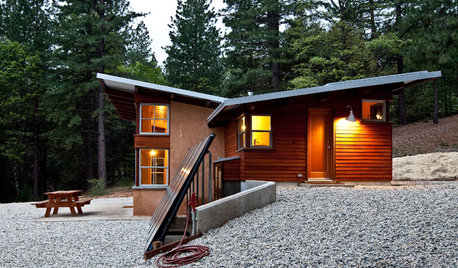
GREAT HOME PROJECTSHow to Add a Solar Water Heater
Lower energy bills without a major renovation by putting the sun to work heating your home’s water
Full Story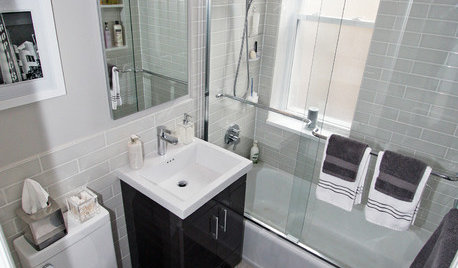
BATHROOM DESIGNWater Damage Spawns a Space-Saving Bathroom Remodel
A game of inches saved this small New York City bathroom from becoming too cramped and limited
Full Story
SAVING WATER11 Ways to Save Water at Home
Whether you live in a drought-stricken area or just want to help preserve a precious resource, here are things you can do to use less water
Full Story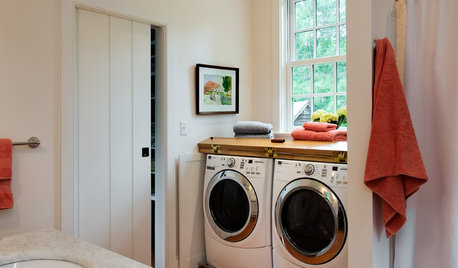
GREEN BUILDINGWater Sense for Big Savings
Keep dollars in your pocket and preserve a precious resource with these easy DIY strategies
Full Story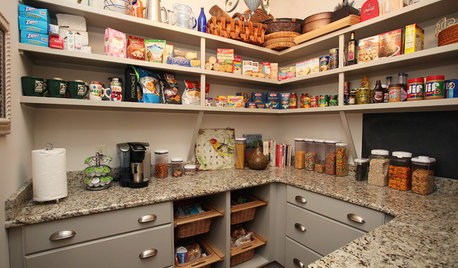
LIFEHow to Prepare for and Live With a Power Outage
When electricity loss puts food, water and heat in jeopardy, don't be in the dark about how to stay as safe and comfortable as possible
Full Story
EARTH DAYGrow a Beautiful Garden With Ecofriendly Greywater
Reducing home water waste means lower bills and a healthier planet. Here's how to set up a greywater home irrigation system that can help
Full Story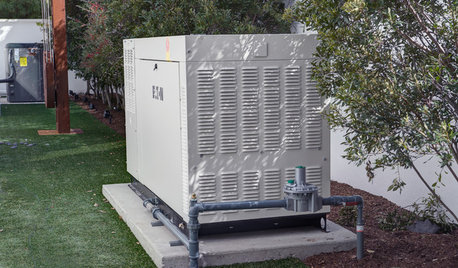
DISASTER PREP & RECOVERYMore Power to You: How to Pick the Right Generator
If your home's electricity goes, don't let it take your necessities with it — keep systems running with this guide to backup power
Full Story
LIVING ROOMSHow to Convert Your Wood-Burning Fireplace
Learn about inserts and other options for switching your fireplace from wood to gas or electric
Full Story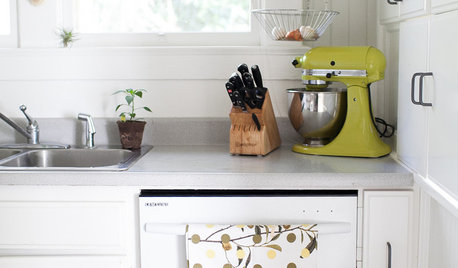
HOUSEKEEPINGDishwasher vs. Hand-Washing Debate Finally Solved — Sort Of
Readers in 8 countries weigh in on whether an appliance saves time, water and sanity or if washing by hand is the only saving grace
Full StorySponsored



smiles33Original Author